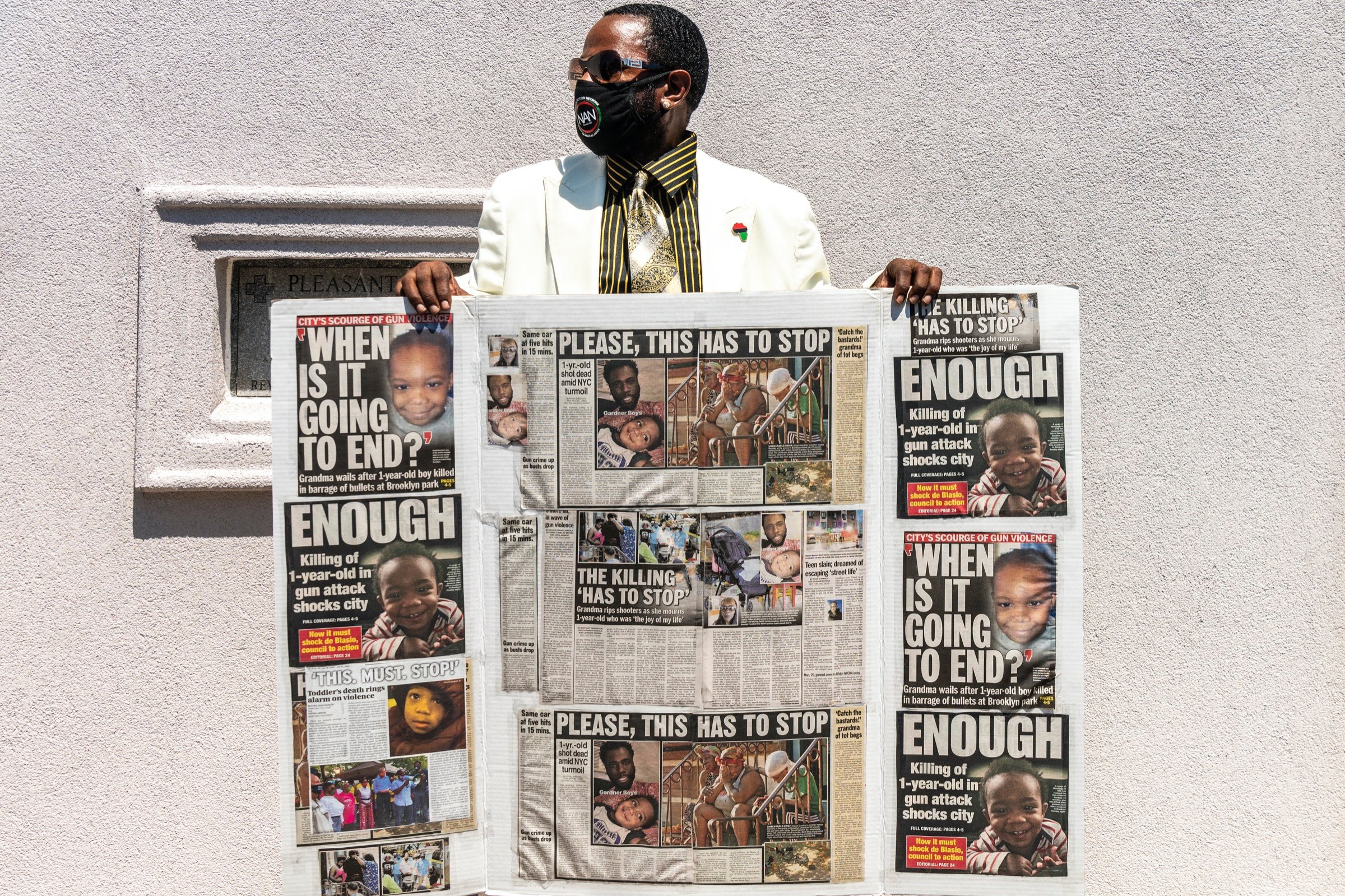Erricka Bridgeford runs Baltimore Ceasefire 365, a grassroots gun violence prevention organization. The kind of work the group does to defuse conflicts and help victims depends on the person-to-person connections that social distancing makes challenging, to say the least. But with shootings continuing to haunt the city, she and her team, like community anti-violence groups around the country, are doing the best to adapt. “Murder hasn’t taken a break,” she says. “And just like your buildings need to be cleansed from coronavirus, our neighborhoods need to be cleansed from murders.”
In 2017, Bridgeford was part of a group of activists who started calling on residents to put down their firearms and instead join in neighborhood events. They had a blunt message: “Nobody kill anybody.” The efforts led to the formation of Baltimore Ceasefire 365 and its quarterly weekend campaigns, during which it works to produce reprieves from gun violence while partner organizations host resource fairs that connect residents with social workers, legal assistance, drug addiction specialists, and employment counselors. Other groups host cookouts.
It’s a bootstrap approach that’s now backed by research: A study found that ceasefire weekends were associated with a more than 50 percent reduction in shootings. Local leaders are happy to see it continue despite the disruptions wrought by the virus. “When you have what I call a disease in Baltimore, which is gun violence, that has been spreading on top of COVID-19, you have to have the intensity to fight both of these at the same time,” Baltimore City Council President Brandon Scott told me. “I think it’s critical to continue the work of Baltimore Ceasefire and do it in a thoughtful way.”
For Bridgeford, the impact the coronavirus would have on her group’s outreach set in during a “sacred ritual” on March 23. At these events, her group blesses the spot of a recent homicide while dozens of people join in mourning. “The hardest part was not hugging people” who have lost loved ones, she said. Baltimore Ceasefire 365 has started holding its rites without notifying the public to avoid drawing crowds. “It would be irresponsible,” Bridgeford said, “for us to ask people to come outside their house in these times.”
Much of the group’s other activities have gone virtual. The group is using video conferencing to conflict management training courses, which it now pairs with coronavirus-focused sessions about public health best practices for volunteers and participants. More online meetings are planned for the coming weeks.
One of items on the agenda: what to do about the next ceasefire weekend, scheduled for May 8 through May 10. During a video meeting this week, Bridgeford was insistent that the organization could carry out the event digitally. “People will have to figure out events to have online to mark the ceasefire weekend. It looks like all the events will be virtual,” Bridgeford said. For instance, she hopes to use the occasion to organize an online watch party for a new documentary about Baltimore Ceasefire 365’s work.
Ahead of time, volunteers plan to walk through neighborhoods and spread the message by word of mouth — while maintaining the necessary six-foot distance. Bridgefort also floated an idea that Baltimore residents could sing from their front stoops in the same way that Italians sang from their balconies during that country’s quarantine.
As the date draws near, Bridgeford anticipates that her supporters will get creative.
“I can’t wait to see what people come up with,” she said.


